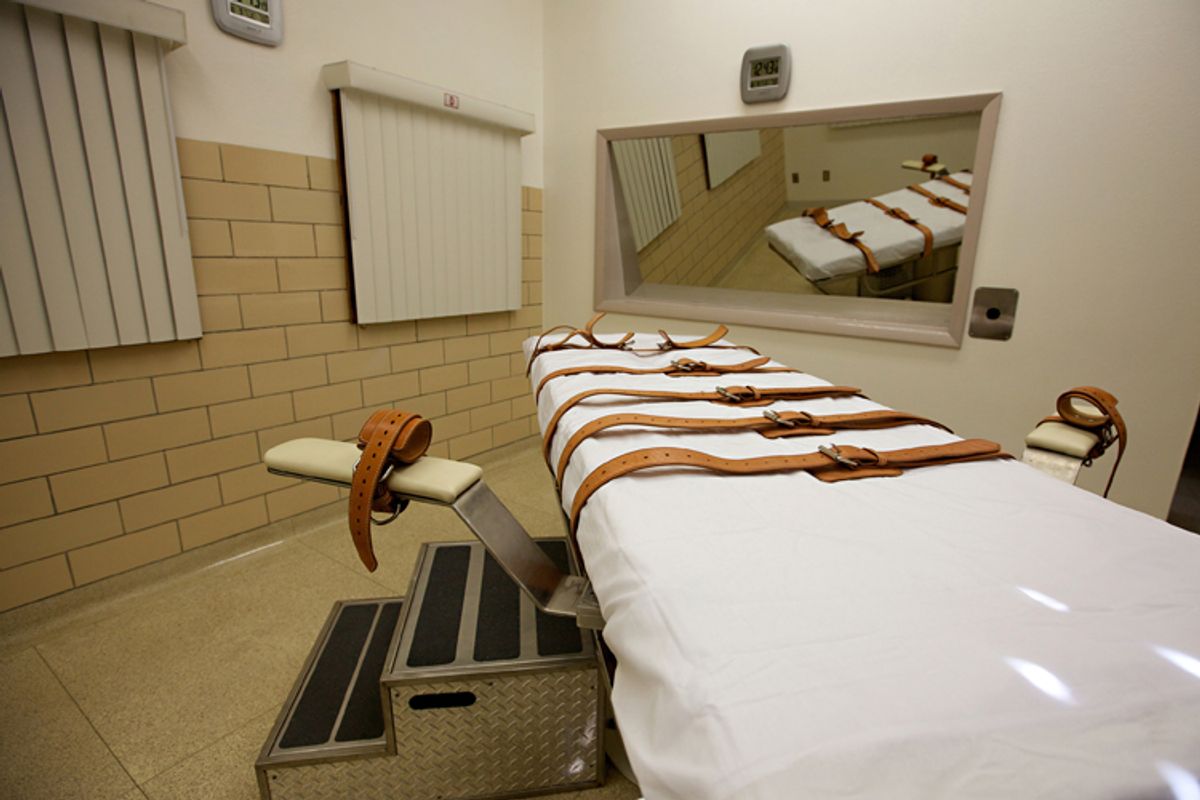In the midst of the pentobarbital shortage -- with U.S. death penalty states unable to procure the anesthetic typically used in three-drug lethal injection cocktails -- experiments with untested drugs have provided harrowing results. Two executions in two weeks this year in which pentobarbital procured from an unregulated U.S. compound pharmacy was used led to seemingly torturous, prolonged deaths.
A new study has found that in recent years, executions in the U.S. have become increasingly prolonged, aligning with efforts to evade the pentobarbital shortage after the drug was banned for export for death penalty use by European regulators.
As the Guardian reported Friday, "A study of Texas department of criminal justice records and eyewitness media reports mainly from the Associated Press shows a notable lengthening of the death process following the switch in July 2012 from the conventional three-drug cocktail to a single drug, pentobarbital."
Via the Guardian:
Ten executions prior to the change took on average 10 minutes to complete, ranging from nine to 11 minutes between the administration of the lethal injection and the declaration of death. The next 23 executions using only pentobarbital took on average 20 minutes, with the full range between 12 to 30 minutes.
...As with most other death penalty states, Texas has dwindling supplies of fatal drugs caused by a worldwide ethical boycott of US departments of corrections by pharmaceutical companies and countries. It was revealed last October that after running low on its pentobarbital stock because of the boycott, Texas turned to a pharmacy near Houston to make a compounded version of the drug. Four men have been executed using this compound pentobarbital, with a declaration of death taking between 11 and 19 minutes.



Shares